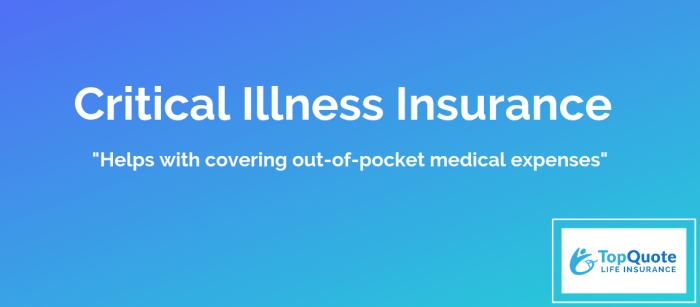Critical illness insurance has become increasingly important in navigating the unpredictable landscape of healthcare costs. In 2025, understanding its benefits and drawbacks is crucial for making informed financial decisions. This comprehensive guide explores the pros and cons of critical illness insurance, helping you determine if it’s the right choice for you and your family.
What is Critical Illness Insurance?
Critical illness insurance provides a lump-sum payout if you’re diagnosed with a specified critical illness, such as cancer, heart attack, stroke, or kidney failure. This payout can be used to cover medical expenses, lost income, or other financial burdens associated with a serious illness. Unlike life insurance, which pays out upon death, critical illness insurance provides financial support while you’re still alive, allowing you to focus on your recovery rather than financial worries.

Source: fintoo.in
Pros of Critical Illness Insurance in 2025
Financial Security During a Critical Illness
- Reduced Financial Strain: The significant financial burden of critical illnesses, including medical bills, rehabilitation costs, and lost income, can be significantly alleviated by the lump-sum payout.
- Access to Better Treatment: The financial resources can allow you to access specialized treatments, medications, and therapies not otherwise affordable.
- Debt Management: The payout can help manage existing debts and prevent further financial distress during a difficult time.
- Maintain Lifestyle: It can help maintain your current lifestyle and support your family’s needs during your recovery period.
Peace of Mind and Reduced Stress
- Focus on Recovery: Knowing you have financial security allows you to concentrate on your health and recovery without the added stress of financial worries.
- Improved Mental Wellbeing: The peace of mind offered can significantly reduce stress and anxiety during a challenging time.
- Family Support: It provides financial support for your family, reducing their burden and allowing them to focus on supporting you.
Flexibility and Customization
- Policy Customization: Many insurers offer customizable policies, allowing you to choose the coverage amount and specific critical illnesses covered.
- Optional Riders: Additional riders can be added to enhance coverage, such as those covering specific conditions or offering additional benefits.
- Multiple Payout Options: Some policies offer multiple payout options, allowing you to receive the funds in installments or a lump sum.
Cons of Critical Illness Insurance in 2025
Cost and Premiums
- High Premiums: Premiums can be substantial, especially for younger individuals or those with pre-existing conditions.
- Premium Increases: Premiums may increase over time, potentially impacting your budget.
- Policy Limitations: Policies often have limitations on the number of claims and the specific illnesses covered.
Potential for Non-Payment
- Strict Definition of Critical Illnesses: Insurers have strict definitions of critical illnesses, and your claim may be denied if your condition doesn’t meet their criteria.
- Waiting Periods: There are often waiting periods before coverage begins, meaning you won’t be covered immediately if you develop a critical illness.
- Pre-existing Conditions: Pre-existing conditions may not be covered, or may be subject to exclusions or limitations.
Alternative Financial Strategies
- Health Savings Accounts (HSAs): HSAs offer tax advantages for saving for healthcare expenses, but they don’t provide the same level of comprehensive coverage as critical illness insurance.
- High-Deductible Health Plans (HDHPs): HDHPs can be more affordable, but require significant out-of-pocket expenses before insurance coverage kicks in.
- Emergency Funds: Building a robust emergency fund can help cover unexpected medical expenses, but it may not be sufficient for major critical illnesses.
Frequently Asked Questions (FAQs)
- Q: How much critical illness insurance do I need? A: The amount of coverage you need depends on your individual circumstances, including your age, health, income, and family responsibilities. It’s advisable to consult a financial advisor to determine the appropriate coverage amount.
- Q: What illnesses are typically covered? A: Commonly covered illnesses include cancer, heart attack, stroke, kidney failure, and major organ transplants. However, the specific illnesses covered vary between insurers and policies. Always review the policy document carefully.
- Q: What is the waiting period? A: The waiting period is the time you must wait after purchasing the policy before coverage begins. Waiting periods typically range from 30 to 90 days.
- Q: Can I get critical illness insurance if I have a pre-existing condition? A: It may be more difficult to obtain coverage, or you may face higher premiums or exclusions for pre-existing conditions. It is crucial to disclose all relevant health information to your insurer.
- Q: How much does critical illness insurance cost? A: The cost varies based on several factors, including your age, health, coverage amount, and the insurer. Obtaining quotes from multiple insurers is recommended.
Conclusion
Critical illness insurance offers significant advantages, particularly in providing financial security during a challenging time. However, it’s essential to carefully weigh the pros and cons, considering your individual circumstances and financial situation. Understanding the potential costs, limitations, and alternative financial strategies is crucial in making an informed decision. Consult with a financial advisor or insurance professional to determine if critical illness insurance is the right choice for you.
References
While specific links to insurance companies are avoided to remain neutral, general information can be found on reputable financial websites and government resources dedicated to health insurance. Searching for terms like “critical illness insurance comparison,” “health insurance resources,” or “financial planning for critical illness” will yield relevant results.
Call to Action
Ready to explore your critical illness insurance options? Contact a qualified financial advisor today for a personalized consultation and find the best coverage to suit your needs.

Source: topquotelifeinsurance.com
Q&A
What illnesses are typically covered by critical illness insurance?
Coverage varies by policy, but common covered illnesses often include cancer, heart attack, stroke, kidney failure, and major organ transplants.
How much does critical illness insurance cost?
Premiums depend on factors like age, health, coverage amount, and the insurer. It’s advisable to obtain quotes from multiple providers.
Can I claim multiple times on a critical illness policy?
Some policies offer a single payout, while others may provide multiple payouts for different covered illnesses or recurring instances of the same illness. Check the policy details.
What happens if I am diagnosed with a covered illness but don’t meet all the policy’s requirements?
Each policy has specific definitions and criteria for covered illnesses. Failure to meet all the requirements might result in a claim denial. Carefully review the policy wording.
